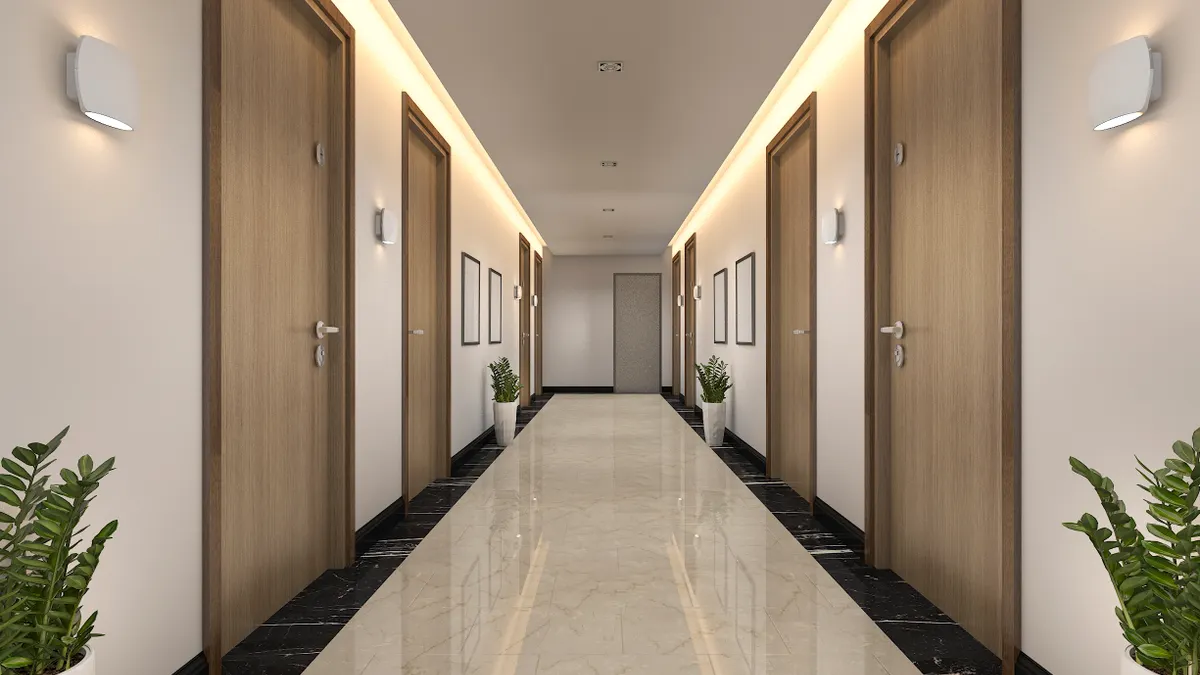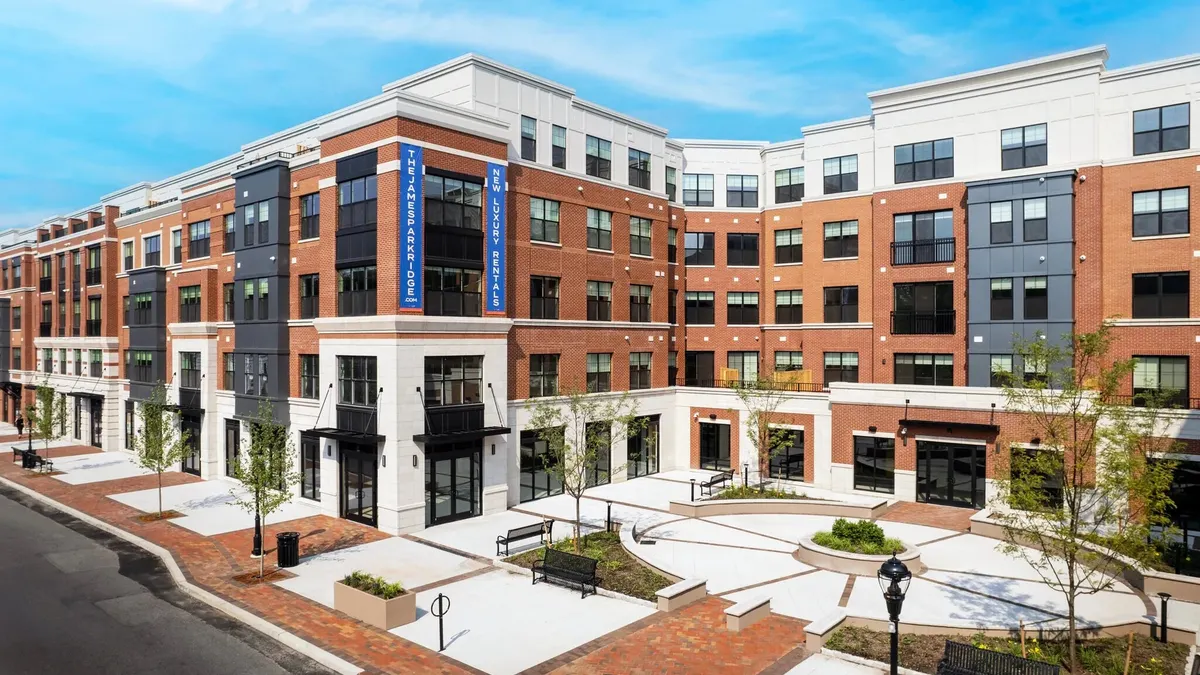Door hardware is more than just a detail. In multifamily housing environments, the hardware you choose plays a role in shaping tenant safety, convenience, and satisfaction, while also streamlining staff operations.
Smart, durable hardware can not only improve the living experience but also reduce maintenance headaches, operational costs, and turnover by making your property more attractive and competitive.
Ready to get your door hardware right? Consider these three points before you make your next investment.
1. Define Goals and Challenges Before Choosing a System
Before investing in a new access control or door hardware system for your multifamily property, it’s crucial to define your goals and identify your unique challenges.
Taking time to evaluate your needs upfront will make sure you end up with a solution that supports your property, tenants, and staff, rather than being swayed by something that looks good on paper but may not be practical for your situation.
For instance, perhaps a new system promises remote management, mobile credentials, and real-time audit trails. But, after rollout, several issues emerge, as tenants struggle with gaining access, poor Wi-Fi leads to frequent lockouts, and your team encounters higher-than-expected maintenance costs.
Think through questions like:
-
What problems do we struggle with most when it comes to door hardware and unit access (lost keys, credential management, etc.)?
-
What are the main security concerns for our property?
-
Do we need a system that can scale as our property grows, or that can integrate with other smart building technologies in the future?
-
What is our budget? How does the total cost of ownership align with our financial plan?
Answering these questions can help you select hardware that will deliver lasting value.
2. Carefully Evaluate System Features and Workflows Before Making a Purchase
When evaluating door hardware, it’s essential to consider traditional and modern solutions. There is no right answer: The best choice for your property depends on operational needs, staff capabilities, and long-term goals.
Before making a decision, carefully evaluate the features and workflows of the systems you’re considering. Take time to compare how each system will enable your team to do things like manage access logs and credential updates, as well as integrate with other property management tools to streamline operations and improve efficiency.
Will the solution you pick really do what you want it to? For example, some systems require manual data collection at each door, while others automate audit trails and reporting. The decision you make can significantly impact your daily operations and staff workload.
No matter what type of solution you’re considering, think through questions like:
• How will the system impact daily operations? Will it be intuitive for staff to manage?
• What level of security and durability does the property’s hardware need in each area?
• How easy will it be to manage access changes?
• Is the hardware compatible with existing doors and infrastructure?
• What are the ongoing maintenance and support requirements?
By asking these questions, you can evaluate your options and choose a solution that enhances security, convenience, and operational efficiency.
3. Consider Flexible Systems that Can Support Mobile and Legacy Access
Mobile credentials, which allows tenants to use their smartphones as keys, appeal to many property managers who want to streamline access and reduce the need for physical keys, cards, or fobs.
While these systems seem innovative and convenient, it’s important to recognize that they can introduce new steps that some tenants (and staff) may find cumbersome or frustrating. The mobile-access process can be difficult to navigate, depending on the system you choose: find your phone, open an app, navigate to the correct screen or door, push a button, hold the phone to the door, and wait for the door to unlock.
Many multifamily properties recognize that at least some of their tenants still prefer the simplicity of a traditional fob, card, or even key, especially when quick, one-step access is needed. Not all residents will want or be able to use their phones as keys.
A flexible access control platform can give you options, offering the convenience of mobile credentials while still supporting legacy approaches to property access. This can help you make sure you continue to create a positive tenant experience while preparing your property for upgrades and improvements down the road.
Smart Choices Today for Better Results Tomorrow
Don’t let door hardware be an afterthought. Making the best choices today can deliver big differences tomorrow in terms of maintenance and repair, tenant satisfaction, and security.
Take the time to define your goals and evaluate your options to make sure you get your door hardware right.
Learn more about hardware options from Hager.








